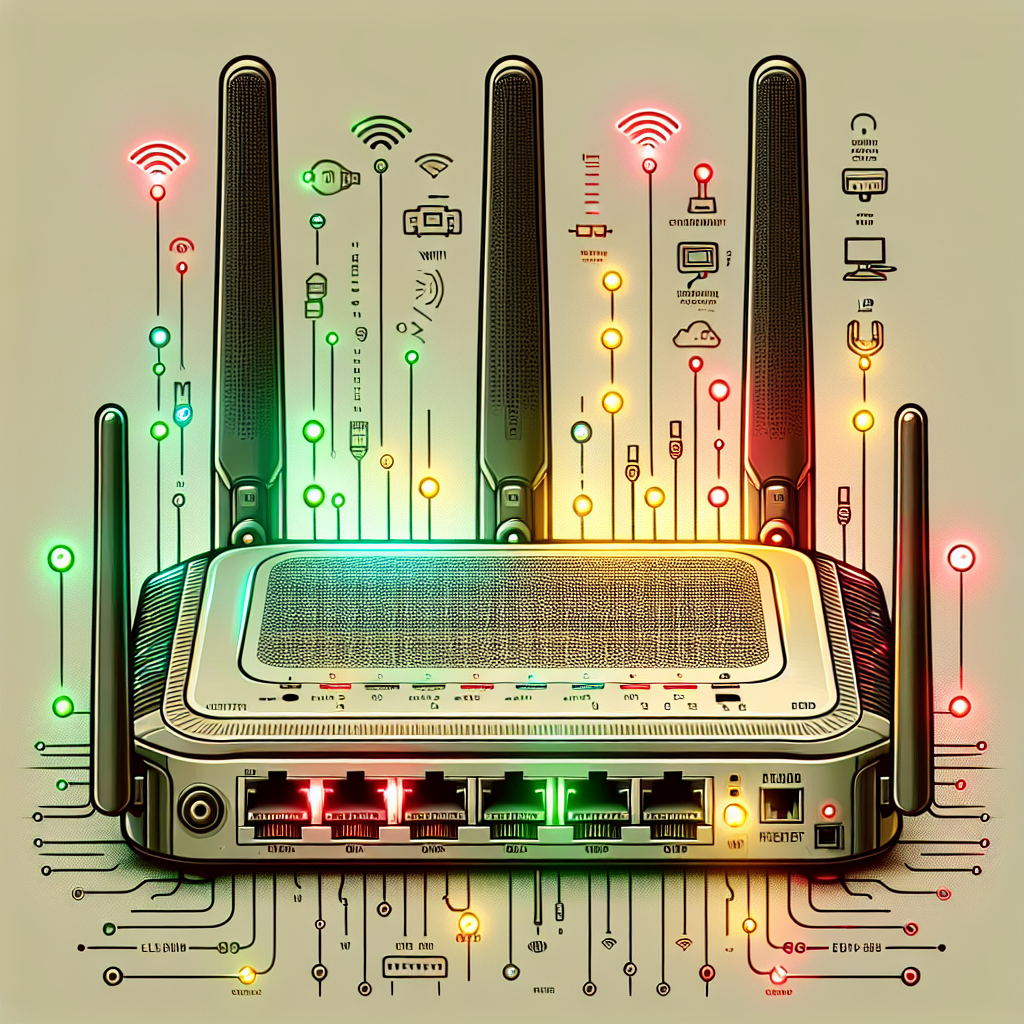Understanding Router Lights: An Essential Guide
Routers are the backbone of home and office networks, providing the internet connectivity that is so essential in today’s world. However, many people are often puzzled by the numerous lights on their router. These lights can provide valuable information about the status and health of your internet connection. In this guide, we will decode what each of these lights indicates so you can diagnose problems and ensure your network is running smoothly.
Common Router Lights and Their Meanings
Here is a table summarizing the common lights found on most routers and what they usually signify:
| Light | Color | Status | Meaning |
|---|---|---|---|
| Power | Solid Green | On | Router is powered on and functioning normally. |
| Power | Blinking Green | Blinking | Firmware update in progress or router starting up. |
| Internet | Solid Green | On | Internet connection is stable and active. |
| Internet | Blinking Green | Blinking | Data is currently being transmitted or received. |
| Wi-Fi | Solid Green | On | Wi-Fi network is up and running. |
| Wi-Fi | Blinking Green | Blinking | Data being transmitted over the Wi-Fi network. |
| Ethernet | Solid Green | On | Device connected via Ethernet is active. |
| Ethernet | Blinking Green | Blinking | Data being transmitted over Ethernet connection. |
| WPS | Solid Green | On | WPS setup is complete. |
| WPS | Blinking Green | Blinking | WPS setup in progress. |
| Warning | Red | On | There is an issue, often with the internet connection. |
A Closer Look at Each Light
Power Light
The power light is one of the most crucial indicators on your router. A solid green power light suggests that your router is turned on and working correctly. If the power lamp is blinking, the device is in the startup phase or updating its firmware. In case this light doesn’t turn on, the router may have hardware issues.
Internet Light
The internet light shows the status of your internet connection. A solid green internet light means that your internet connection is active and stable. If the light is blinking green, it means data is being transmitted or received. A red or no internet light often indicates a problem with your ISP or the connection.
Wi-Fi Light
The Wi-Fi light indicates the status of your wireless network. A green Wi-Fi light means your Wi-Fi is operational. When it blinks, data is actively being transmitted over the network. If this light is off, that could signify that the wireless function is disabled or facing issues.
Ethernet Light
The Ethernet light shows the connection status of devices connected via Ethernet cables. A solid green light means the device is connected and active. If it blinks, data is being transmitted. If there’s no light, there is no connection.
WPS Light
The WPS (Wi-Fi Protected Setup) light indicates the status of the WPS function, used for easy wireless device pairing. A solid green light means the WPS setup is complete. A blinking WPS light indicates the process is in progress. If it fails to turn on, WPS either failed or is disabled.
Warning Light
The warning light generally appears in red and indicates troubleshooting needs. A red light usually means a critical issue, such as a lack of internet connection, and you may need to contact your ISP or consult the router’s manual for specific troubleshooting steps.
Dealing with Common Issues
Understanding what each light signifies can help you in troubleshooting common problems. Here are some quick fixes:
- No Power Light: Make sure the power adapter is securely connected. Try another outlet if necessary.
- Red Internet Light: Check if your ISP is facing outages. Restart your modem and router.
- No Wi-Fi Light: Ensure that the wireless function is not disabled in the router settings.
- WPS Setup Failure: Restart the router and try the WPS setup again.
Conclusion
The lights on your router provide a real-time status of your network and internet connection. By understanding what each light means, you can easily diagnose and fix issues, ensuring your internet remains stable and reliable.




